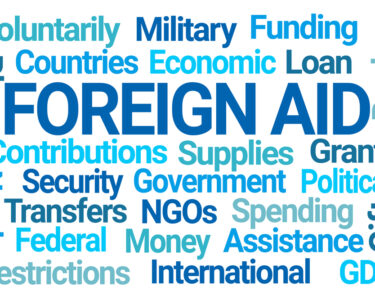This year has felt different. Headlines move fast, guidance shifts, and organizations that never thought much about federal dollars are feeling ripple effects in their programs and budgets. For many leaders, the challenge is not a single new rule. It is the accumulation of small changes that show up in renewals, amendments, and partner agreements. The result is more uncertainty than anyone would like.
You did not wake up wanting to read fine print. Yet that is where the ground is shifting. For many organizations, the surprises are not front-page rules. They are two new sentences in a renewal. A certification added to a subaward. A “termination for convenience” clause that used to be theoretical and now feels real.
You do not need to become a grants specialist to steer through this. What you need is a steady view of the big picture and a practical way to make decisions when the ground moves. The goal is simple. Keep serving your community, protect your people, and avoid taking on obligations you cannot meet.
What is changing
- Policy shifts are moving fast. Executive actions set direction. Agencies translate that into new terms, certifications, or priorities inside announcements, renewals, and modifications.
- Scrutiny is up and certainty is down. There is tighter alignment to administration priorities, pressure on indirect rates, and more pauses or terminations. Sometimes this happens for convenience rather than because of noncompliance.
- Flow-down is real. Even if you do not hold a federal award, primes and pass-through funders may add new requirements to subawards or vendor agreements.
- Hot-button areas matter. Programs touching DEI, immigration-related services, protest or advocacy risk, or higher-ed-type benefits are more likely to see new attestations or eligibility checks.
Who is most affected
- Direct recipients of grants, cooperative agreements, or contracts.
- Subrecipients who must live with what flows down.
- Vendors delivering services funded by federal dollars.
- Organizations with higher indirect rates or programs serving mixed-status populations.
What to watch for
- New language in anything you sign. Renewals, increments, and simple amendments can carry new certifications or termination clauses.
- Notices of Funding Opportunity. Priorities and eligibility can change between cycles.
- Indirect cost treatment. Caps, exclusions, or preferences for lower rates can appear.
- Documentation requests. Expect more evidence asks around eligibility, program alignment, and use of funds.
A simple five-step resilience plan
- Designate a catcher. One person routes all award documents and modifications to program, finance, and compliance reviewers.
- Do a 30-minute terms scan. Look for certifications or attestations, termination language, indirect and allowable costs, and flow-down requirements.
- Tidy your documentation. Keep deliverables, funder communications, budget justifications, and eligibility verifications in a labeled folder per award.
- Prewrite a pause plan. If funding is delayed or terminated, define program scaling, client and staff communications, and who approves changes.
- Brief the board in ten minutes. Share exposure, the pause plan, and any mission trade-offs. Ask for support on reserves and bridge options.
Practical tips that help now
- Do not underprice overhead. If lower indirects improve award odds, confirm true costs still pencil out or politely pass.
- Right-size verification. If you must check participant eligibility, build a minimal, respectful process and train staff on what to collect and what not to collect.
- Mind your advocacy. Keep event conduct rules, coalition MOUs, and social media guidance current so teams can advocate safely while protecting funding.
- Document intent and performance. Short memos to file explaining project alignment can help if alignment is later questioned.
- Ask for clarification in writing. If a new certification is vague, confirm scope. Clarify which programs, which time period, and project versus whole organization.
Red flags worth a quick counsel check
- A new certification that is undefined or applies organization-wide.
- A termination for convenience notice. You may be able to recover reasonable close-out costs.
- Requirements that conflict with law or your core mission and ethics.
- Subaward terms that go beyond what the prime is required to flow down.
Messaging by audience
- Staff. We will keep serving clients. If a pause hits, here is our triage and referral plan.
- Board and finance. We are protecting reserves, modeling a 60–90 day pause, and keeping true costs in proposals.
- Funders and partners. We are aligned on outcomes, and we will document compliance without burdening clients.
Bottom line
You do not need to chase every policy memo. Focus on the terms in your agreements, how you document your work, and how quickly you can start new programs up or wind programs down. That turns uncertainty into manageable risk.
Ellis Carter is a nonprofit lawyer with Caritas Law Group, P.C. licensed to practice in Washington and Arizona. Ellis advises nonprofit and socially responsible businesses on federal tax and fundraising regulations nationwide. Ellis also advises donors concerning major gifts. To schedule a consultation with Ellis, call 602-456-0071 or email us through our contact form.
👇Follow more 👇
👉 bdphone.com
👉 ultractivation.com
👉 trainingreferral.com
👉 shaplafood.com
👉 bangladeshi.help
👉 www.forexdhaka.com
👉 uncommunication.com
👉 ultra-sim.com
👉 forexdhaka.com
👉 ultrafxfund.com
👉 bdphoneonline.com
👉 dailyadvice.us




